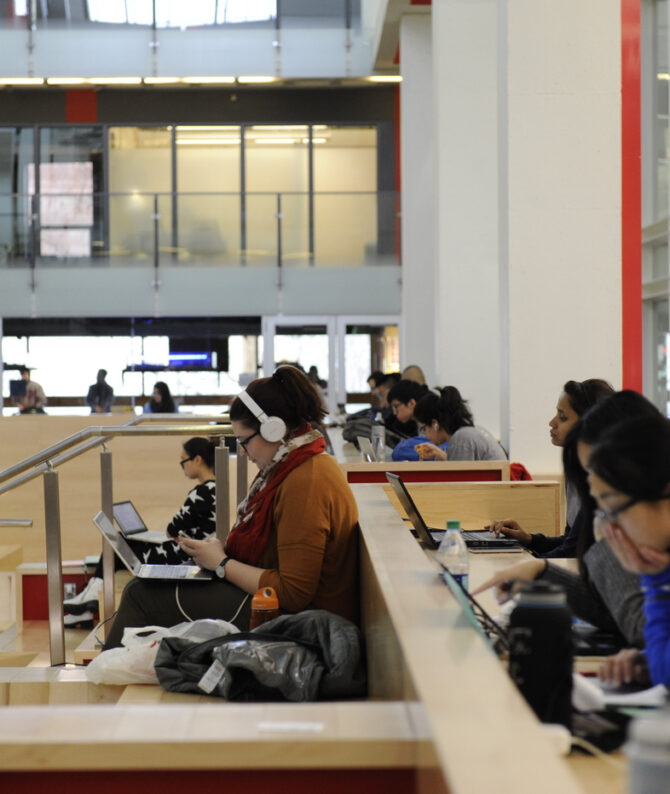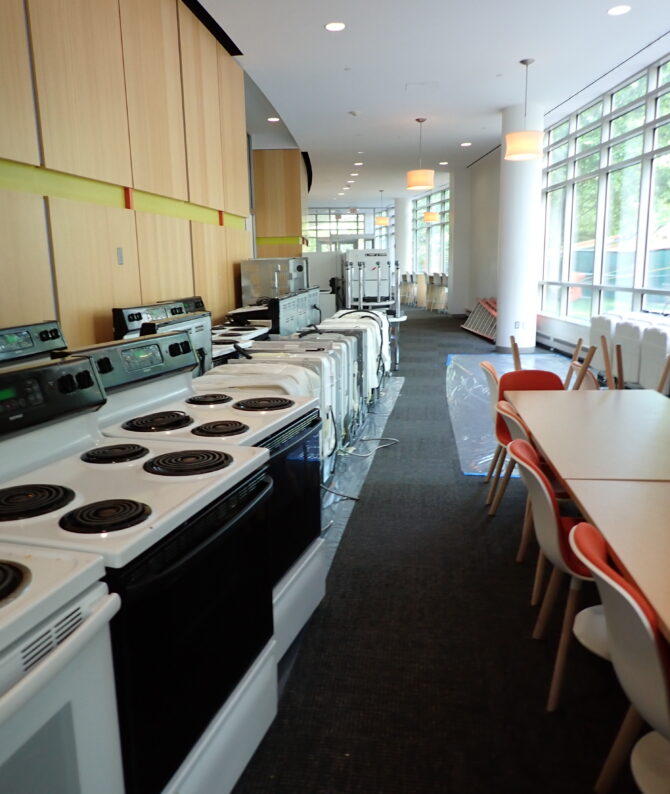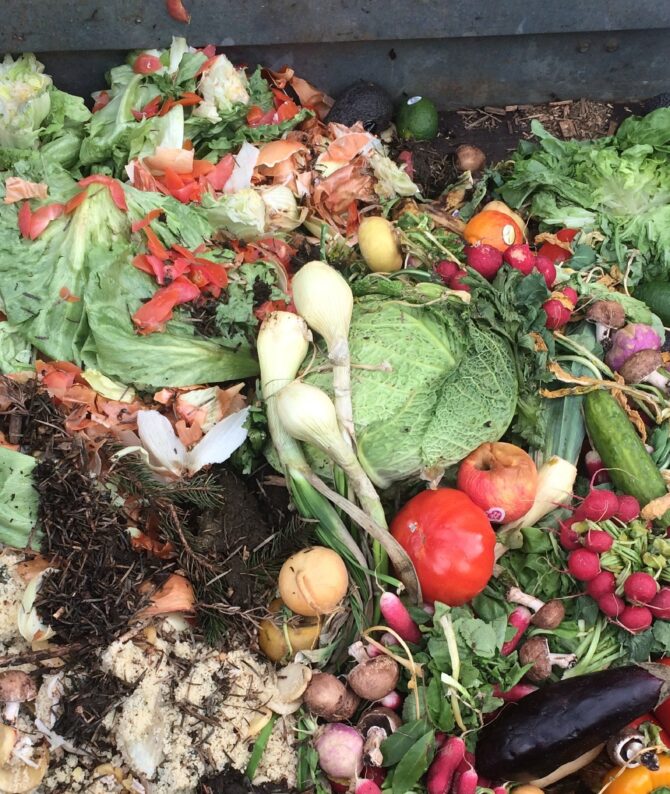Entrepreneurship Club Sustainable Fashion Competition Highlights Student Startups
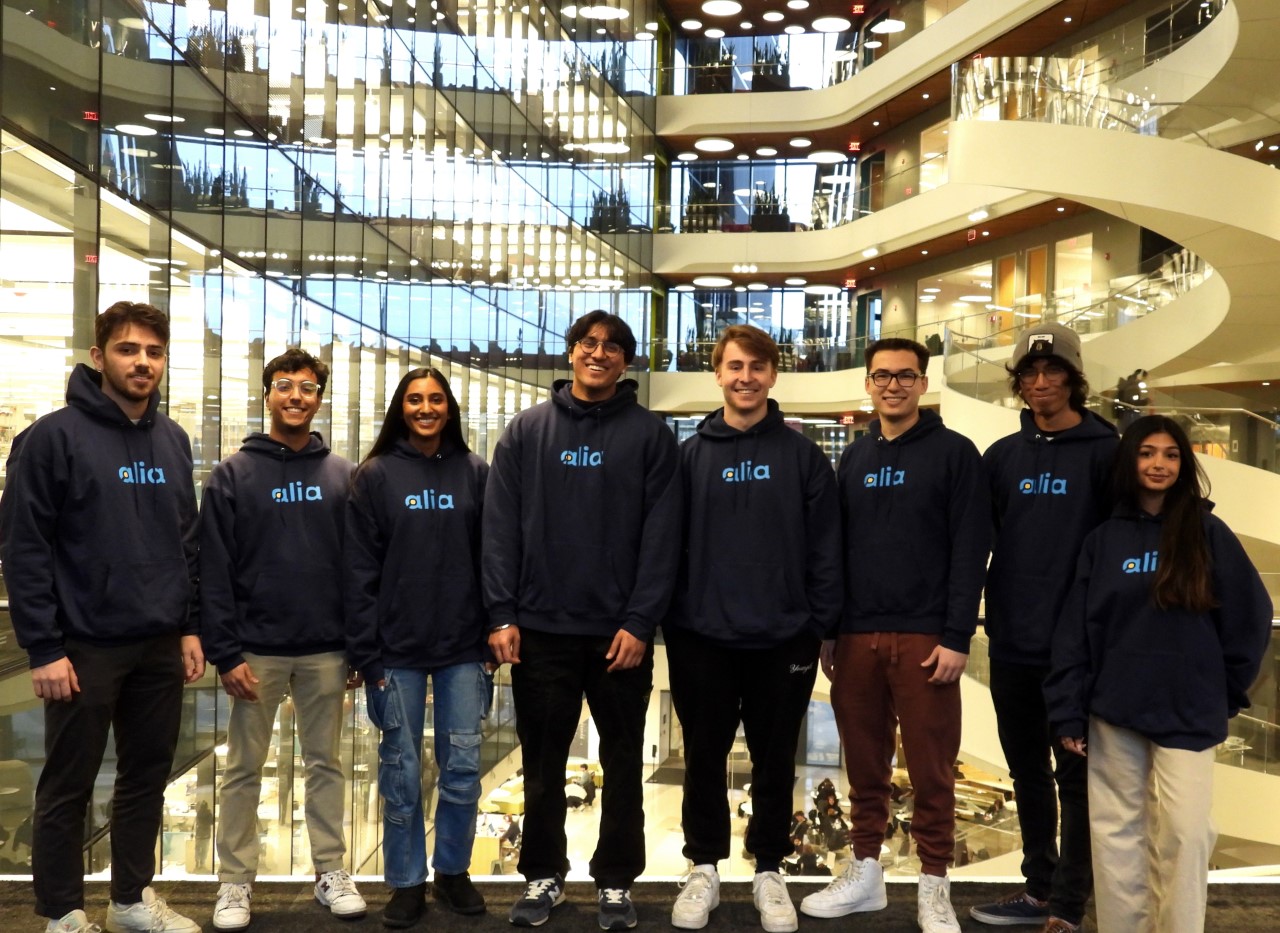
The Northeastern Entrepreneurship Club recently organized a competition on February 25 at Horticulture Hall, where 16 teams showcased their startups related to sustainable fashion. These teams competed for the opportunity to participate in the Boston Hult prize competition. The three judges, Nikki James, Ganish Kolli, and Madhavi Venkatesan provided feedback to the teams.
Friends Shaan Arora and Cory Gill took home the first-place prize of $750 and automatic entry into Boston’s Hult competition with their startup Alia, a website that encourages people to support local businesses, specifically minority-owned businesses, or businesses with a sustainability focus. Alia rewards customers for learning about the history of the company and its founders because Arora and Gill believe that people’s stories are their best asset in businesses.
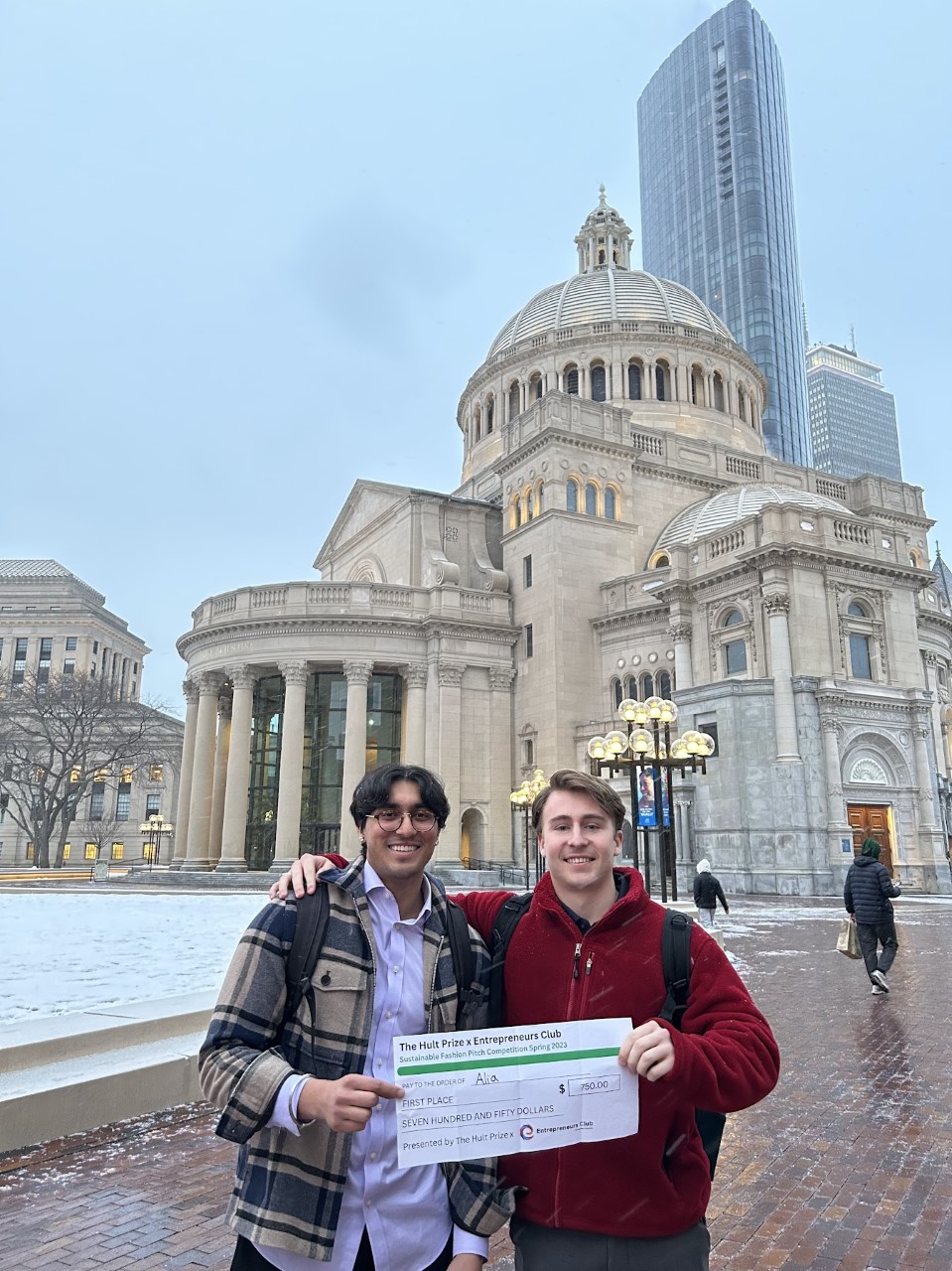 |
Today, many small businesses start online, making it impossible to create a human connection with customers and share what inspires them to run their business.
“There’s so much traffic online. How could a small business break through the noise and get their story across in an effective manner and create those emotional relationships?” Shaan said.
Arora and Gill’s parents both run their own small businesses and worked hard to keep them running, especially through the pandemic.
Alia was founded at the beginning of this year and connected to the sustainability in fashion theme because they encourage people to shop small and stop supporting fast fashion and specialize in lifestyle type brands, some of which are fashion oriented. Their revenue comes from the website giving them a subscription fee, and Alia in turn, helps provide them customers. Customers also get rewards for shopping through Alia. Gill and Arora hope that someday people will go to Alia to shop instead of bigger brands like Amazon, which are less sustainable and destroy small businesses.
“Our entire goal is helping small businesses. I think there’s a lot of ways that you can do that, whether that be improving the ability to underprice their products better or their exposure compared to large retailers, or improving the shipping experience, like building trust,” Gill said.
Northeastern resources including IDEA venture accelorator, the entrepreneurship club’s Husky Startup Challenge, and student-led product developer Generate, helped jumpstart their business.
At the actual competition in February, Arora and Gill were happy at how “collaborative” it was. Many of the startups there could someday potentially be Alia’s customers, so the competition was a chance to get feedback as much as it was to network. They appreciated the advice of economics professor Madhavi Venkatesan, who teaches various courses on sustainable economics. She encouraged the team to focus on the sustainability of individual companies and look at aspects like shipping and packaging.
As the first place winners, the team received a $750 check, and advanced to the Boston semifinals, where they will present a more polished version of their product against other Boston competitors.
The team behind “Waisted” won second place and $500 to split between the five team members, who were Harrison Freiman, Chengyang (Ada) Chen, Darleen Rumenser, Sabrina Pan and Ana Harb. Their product is a site that allows students to swap or sell their used clothes. It was created to address students’ reliance on fast fashion and particularly address the difficulty of finding clothes for themed parties.
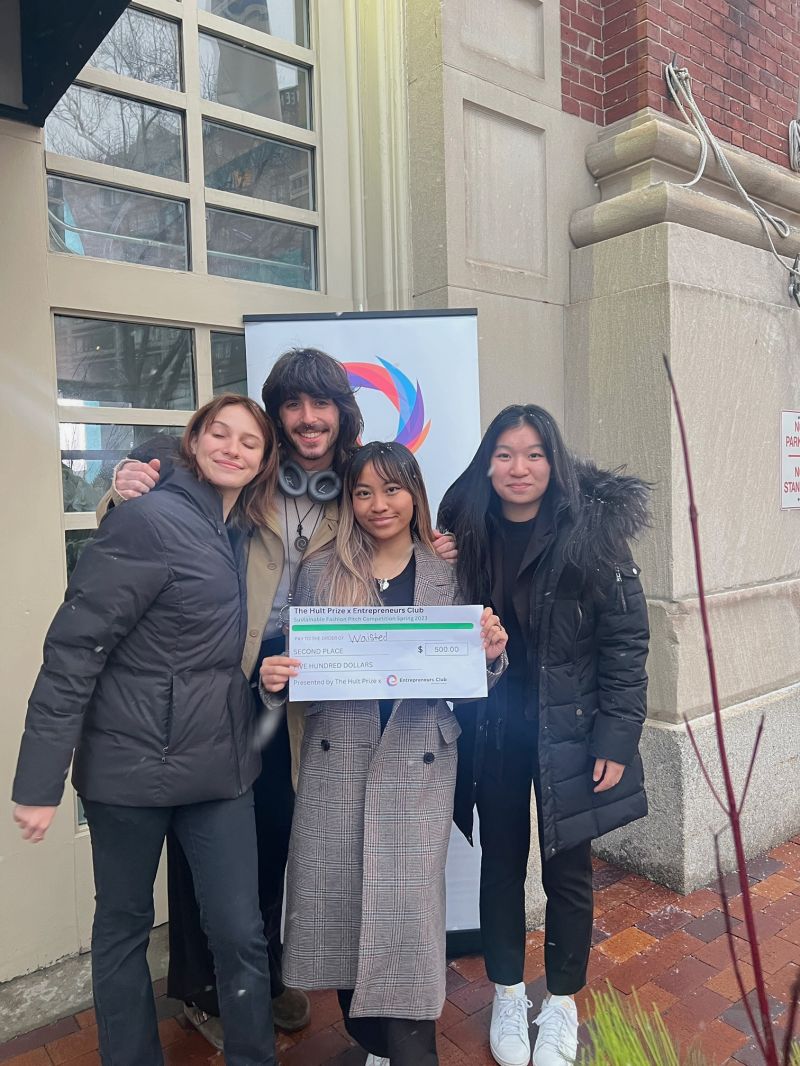 |
Another team, comprised of Aadi Gautam Sharma, Agasthya Krishna and Satya Sowri Sampath Korturti, did not place but still gained valuable experience and insight through the competition. Their company BlockFIT is aiming to create a blockchain service for fashion companies to track the life cycle of their clothes to prevent textile waste.
Bella Pivo, who was one of the Northeastern Hult competition campus directors, said that she hopes to compete in the Hult competition again next year and in the process of developing a club devoted completely to sustainable innovation. The club, called the Sustainable Innovation Network, is currently in the process of choosing leadership positions for the fall when they will really get started.
Written by Renée Abbott, April 25th, 2023

